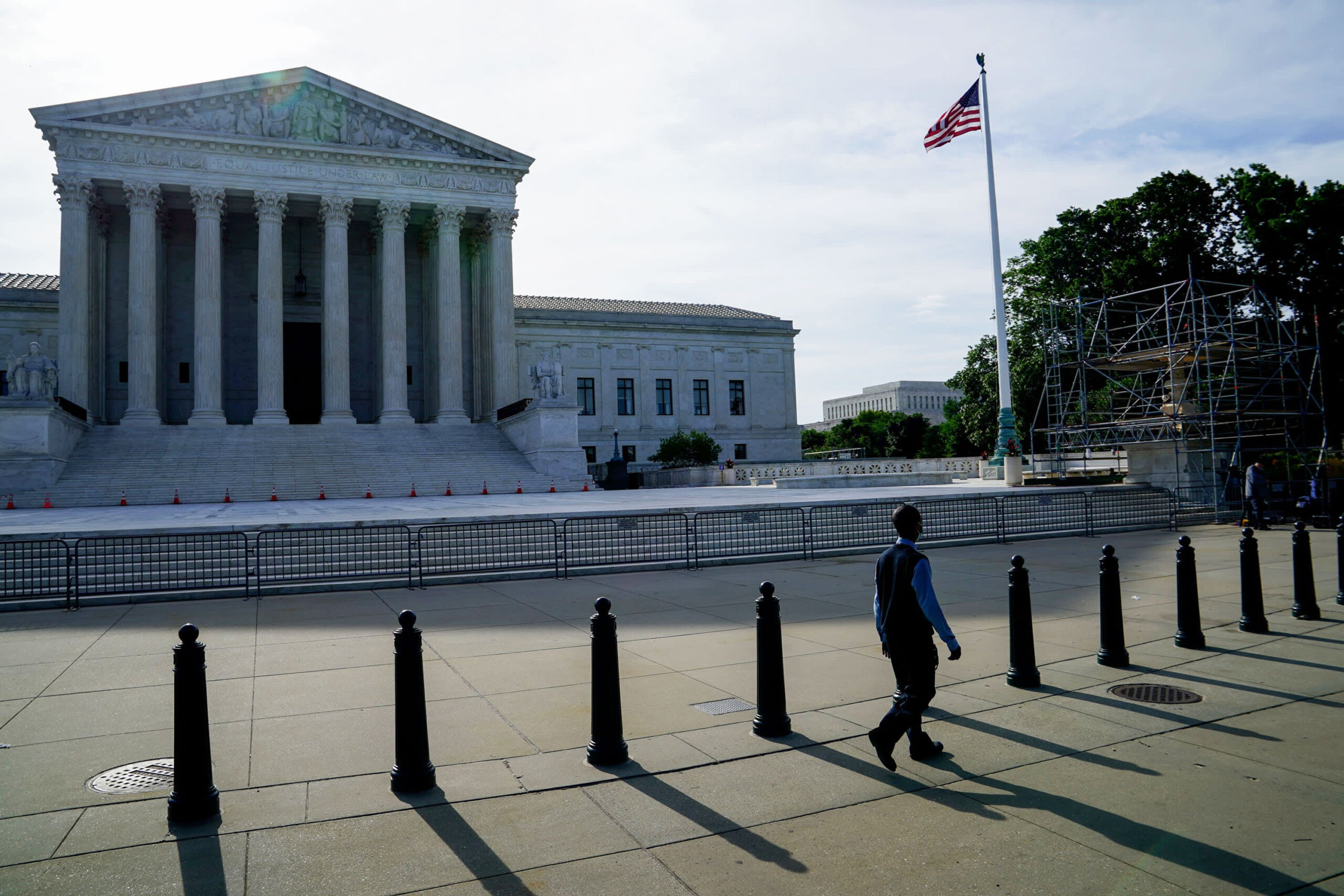Supreme Court refuses to block restrictive Texas abortion law in 5-4 decision
People stroll previous the U.S. Supreme Court the day the court docket is ready to launch orders and opinions in Washington, June 1, 2021.

People stroll previous the U.S. Supreme Court the day the court docket is ready to launch orders and opinions in Washington, June 1, 2021.
Erin Scott | Reuters
The Supreme Court declined to block a Texas law banning most abortions in a 5-4 decision late Wednesday.
Chief Justice John Roberts and the court docket’s three Democratic appointees, Justices Stephen Breyer, Sonia Sotomayor and Elena Kagan, dissented.
(adsbygoogle = window.adsbygoogle || []).push({});
The “heartbeat” law took effect after midnight in Texas on Wednesday. It bars most abortions after as early as six weeks of being pregnant — when many ladies nonetheless have but to uncover they’re pregnant — and permits personal residents to file civil lawsuits towards abortion suppliers.
Sotomayor known as the decision “gorgeous,” saying the Texas law “flouts practically 50 years of federal precedents.”
“Presented with an software to enjoin a flagrantly unconstitutional law engineered to prohibit girls from exercising their constitutional rights and evade judicial scrutiny, a majority of Justices have opted to bury their heads in the sand,” she wrote.
On Monday, a bunch of abortion suppliers and advocates, together with Planned Parenthood, had filed an emergency request to block the law’s implementation. The petitioners said the law would basically overturn the precedent set by Roe v. Wade, the landmark 1973 case that enshrined the appropriate for girls to select to have an abortion.
In response, a bunch of Texas officers together with Attorney General Ken Paxton urged the excessive court docket to deny their opponents’ bid to thwart the law, calling the request “audacious.”
‘Unprecedented’ enforcement scheme
S.B. 8 was signed into law in May by Republican Gov. Greg Abbott. It prohibits medical doctors from performing or inducing abortions if they’ve “detected a fetal heartbeat for the unborn baby,” besides in medical emergencies.
Roberts wrote that the law was “not solely uncommon, however unprecedented” in the way it delegated enforcement to the general public, as a substitute of state officers.
“The desired consequence seems to be to insulate the State from duty for implementing and imposing the regulatory regime,” he wrote.
The new law empowers people to file civil lawsuits towards abortion suppliers or anybody who “aids or abets” the procedures after the detection of a heartbeat. Those lawsuits can yield at the very least $10,000 in “statutory damages” per abortion.
Sotomayor stated, “In impact, the Texas Legislature has deputized the State’s residents as bounty hunters, providing them money prizes for civilly prosecuting their neighbors’ medical procedures.”
This is breaking information. Please verify again for updates.
— CNBC’s Kevin Breuninger contributed to this report.



